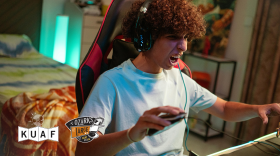A new report makes several policy recommendations aimed at making life easier for Arkansas child care providers.
The report by the University of Arkansas Office for Education Policy identifies six major issues for providers in the state, including low pay, high turnover and an overreliance on federal funding.
Amy Pinkston with Child Care Aware of Northwest Arkansas says state and local regulations are often confusing and burdensome to providers. She says that’s especially true for new providers seeking to hire a director.
“Finding a qualified director is one of the biggest hurdles for new providers, because the training and experience needed for licensure often take longer than the 60-day window allowed before opening. This means new centers can be ready in every other way—with the facility, equipment, and interested families—but they’re unable to open their doors simply because the director training process hasn’t caught up.”
Pinkston says salaries often lag behind those of K-12 teachers, leading to turnover and difficulty retaining qualified staff.
Sarah McKenzie, executive director of the UA Office for Education Policy, says there are several ways the state can step in to help defray common expenses that could be burdensome to providers.
“Another recommendation is to provide grants and subsidize background checks, for example, explore pooled or state-backed insurance programs, or provide grants or low-interest loans to help cover facility modifications. Create clear pathways and shared background check systems, so strengthening the workforce and professional development opportunities can go a long way toward easing the burdens on child care providers and encourage more of them to enter the market.”
The report also recommends easing zoning restrictions on child care providers and putting more emphasis on family-based child care homes in rural areas.
Draft revisions of child care guidelines are currently under review by the Arkansas Office of Early Childhood and will be up for approval by the State Early Childhood Commission in the coming months.
Ozarks at Large transcripts are created on a rush deadline. Copy editors utilize AI tools to review work. KUAF does not publish content created by AI. Please reach out to kuafinfo@uark.edu to report an issue. The audio version is the authoritative record of KUAF programming.








